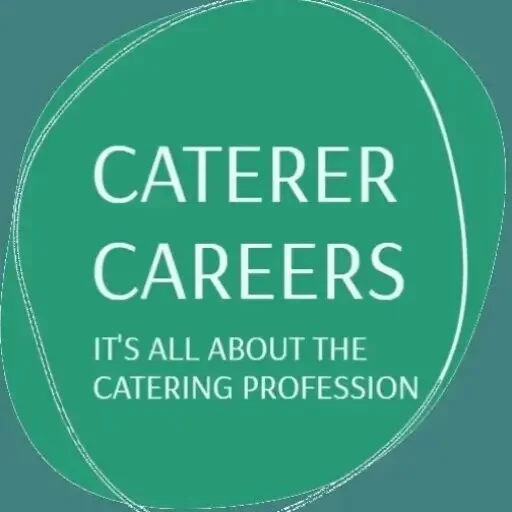
An aspiring hospitality professional.
Introduction
The hospitality industry is known for its dynamic environment, customer-centric focus, and diverse career opportunities.
Aspiring professionals entering this field often have a passion for service, but the road to success requires more than just enthusiasm. It involves acquiring skills, understanding industry nuances, and cultivating the right mindset.
Seasoned professionals who have navigated the complexities of hospitality can offer invaluable advice to those just starting. This article explores key advice that can help aspiring hospitality professionals build successful and fulfilling careers.
1. Cultivate a Service-Oriented Mindset
One of the most critical aspects of working in hospitality is developing a service-oriented mindset. In this industry, the guest’s experience is paramount, and every interaction should reflect a genuine desire to meet and exceed their expectations.
Aspiring professionals should focus on understanding the importance of customer satisfaction and be willing to go the extra mile to ensure that every guest feels valued. This mindset is the foundation of success in any hospitality role, from entry-level positions to leadership.
2. Develop Strong Communication Skills
Communication is at the heart of the hospitality industry. Whether you are interacting with guests, colleagues, or management, clear and effective communication is essential.
Aspiring professionals should work on honing their verbal and non-verbal communication skills. This includes active listening, being articulate, and understanding the nuances of body language.
In a multicultural industry like hospitality, being able to communicate effectively across different cultures is also crucial. These skills will not only help you excel in your role but also build strong relationships within your team.
3. Embrace Lifelong Learning
The hospitality industry is constantly evolving, with new trends, technologies, and customer expectations emerging regularly. Aspiring professionals should embrace the concept of lifelong learning.
This could involve pursuing formal education, attending workshops, or staying updated with industry news.
Learning doesn’t stop at acquiring technical skills; it also includes understanding new customer preferences, sustainable practices, and innovative service methods. Professionals who commit to continuous learning are better equipped to adapt to changes and remain competitive in the industry.
4. Build a Strong Professional Network
Networking is a vital component of career growth in hospitality. Building a strong professional network can open doors to new opportunities, provide support, and offer insights into industry trends.
Aspiring professionals should actively seek out networking opportunities by attending industry events, joining professional organizations, and engaging with peers online.
A well-connected individual is more likely to receive job referrals, mentorship, and advice that can propel their career forward.
5. Stay Resilient and Adaptable
The hospitality industry can be demanding, with unpredictable hours, high-pressure situations, and the need to handle a variety of challenges on the fly. Aspiring professionals should develop resilience and adaptability to thrive in such an environment.
Resilience involves maintaining a positive attitude and bouncing back from setbacks, while adaptability refers to being open to change and ready to take on new responsibilities.
These qualities are essential for long-term success and can help professionals navigate the ups and downs of their careers.
Chart: Key Advice for Aspiring Hospitality Professionals
| Advice | Why It Matters | How It Contributes to Success |
|---|---|---|
| Cultivate a Service-Oriented Mindset | Ensures guest satisfaction and enhances the overall experience. | Builds a strong reputation and leads to repeat business. |
| Develop Strong Communication Skills | Facilitates clear interactions with guests and colleagues. | Improves teamwork and guest relations. |
| Embrace Lifelong Learning | Keeps you updated with industry trends and new skills. | Enhances your adaptability and competitiveness. |
| Build a Strong Professional Network | Opens doors to opportunities and industry insights. | Leads to job referrals, mentorship, and career advancement. |
| Stay Resilient and Adaptable | Helps you manage stress and adjust to industry changes. | Ensures long-term success in a demanding and dynamic industry. |
FAQs
1. Why is a service-oriented mindset important in hospitality?
A service-oriented mindset is essential because the hospitality industry revolves around creating positive guest experiences.
When you prioritize the needs and satisfaction of guests, you contribute to the success of the business and your professional growth.
2. How can I improve my communication skills for a hospitality career?
Improving communication skills involves practicing active listening, being clear and concise in your speech, and learning to interpret non-verbal cues.
Additionally, understanding cultural differences in communication can enhance your interactions in a diverse environment.
3. What are the benefits of lifelong learning in hospitality?
Lifelong learning keeps you updated with the latest industry trends, technologies, and customer preferences. It also allows you to develop new skills that can make you more versatile and prepared for career advancement.
4. How do I build a professional network in the hospitality industry?
Building a professional network involves attending industry events, joining professional associations, and connecting with peers and mentors online.
Actively participating in these networks can lead to job opportunities and valuable industry insights.
5. How can resilience and adaptability help in my hospitality career?
Resilience and adaptability are crucial in managing the challenges of the hospitality industry, such as dealing with difficult situations, handling stress, and embracing change.
These qualities enable you to thrive in a fast-paced and ever-changing environment.
Conclusion
Aspiring hospitality professionals can greatly benefit from the advice of those who have already established themselves in the industry.
By cultivating a service-oriented mindset, developing strong communication skills, embracing lifelong learning, building a professional network, and staying resilient and adaptable, newcomers can set themselves on a path to success.
The hospitality industry is rewarding but requires dedication, continuous improvement, and a passion for serving others. Following the guidance of experienced professionals can help aspiring individuals navigate the complexities of the industry and achieve their career goals.
Author
-

Benedict Ohia is a seasoned chef with over 15 years of experience in the culinary industry. Passionate about food, innovation, and mentoring others, Benedict combines his chef expertise with his storytelling talent as the founder of CatererCareers.com. Through his niche website, he provides invaluable insights, tips, and resources for aspiring chefs, caterers, and hospitality professionals. Whether guiding career growth or sharing industry trends, Benedict is dedicated to inspiring others to succeed in the dynamic world of catering and culinary arts.
View all posts
